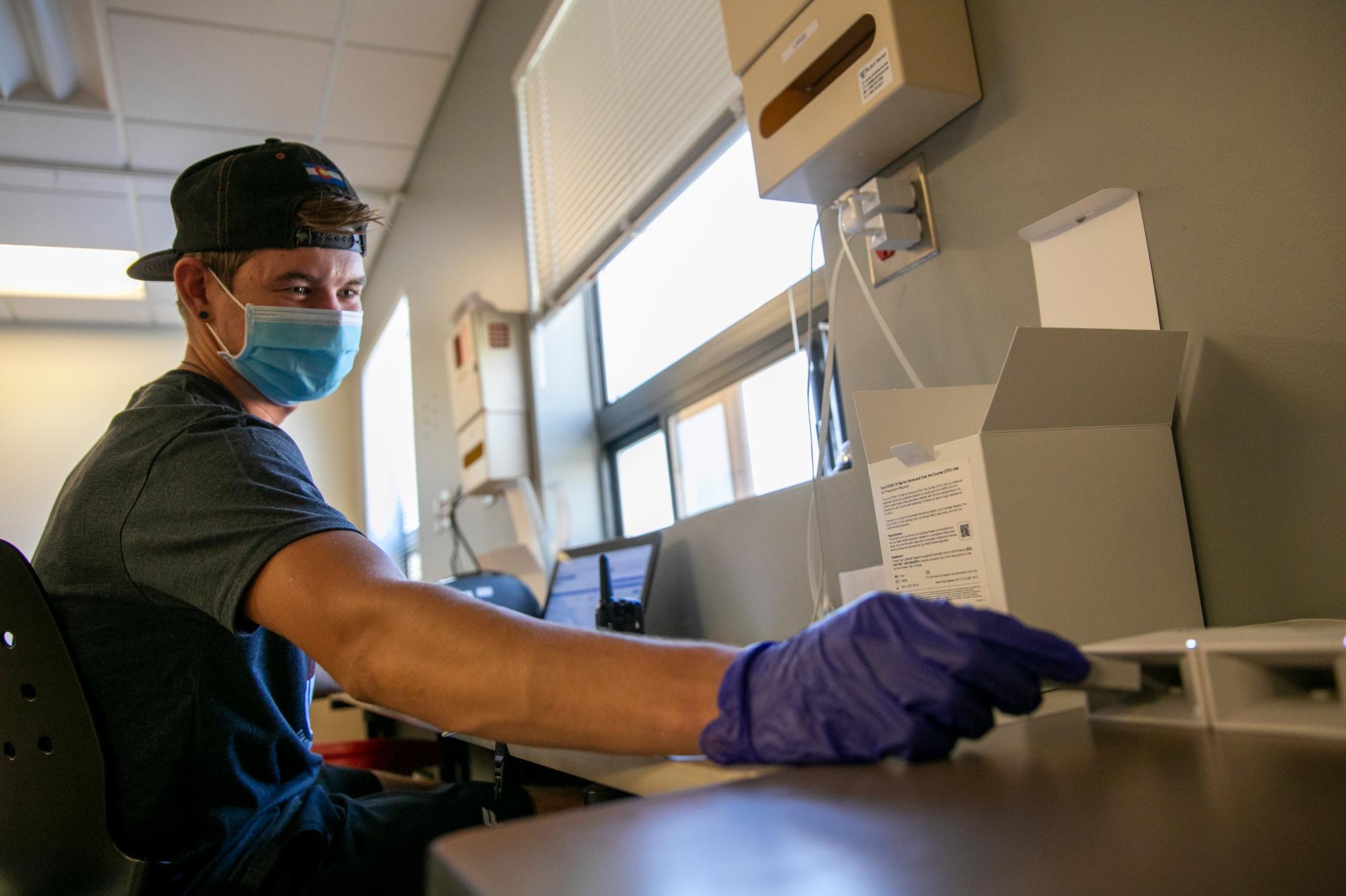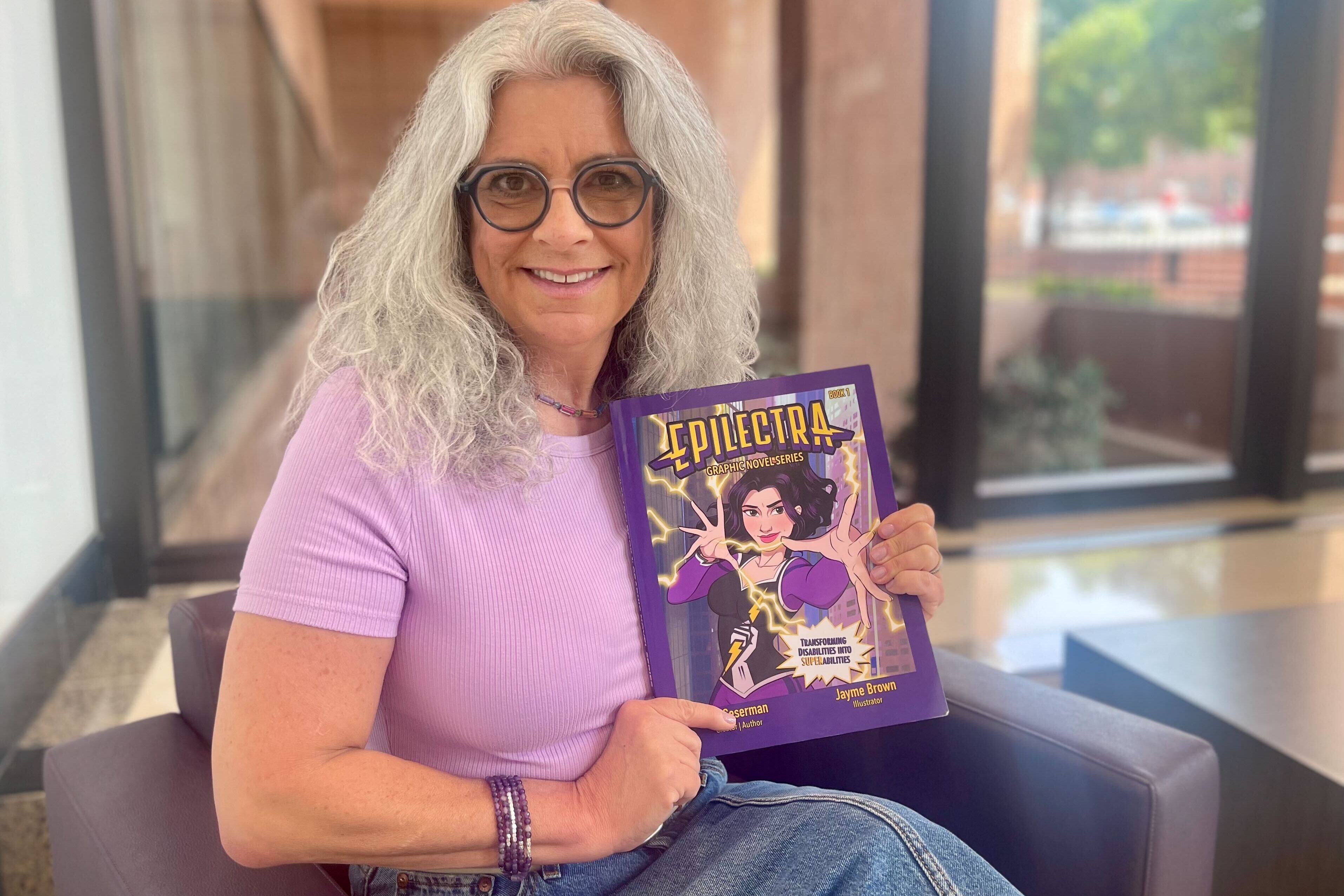
Updated 4:48 p.m.
The omicron variant of COVID-19 has been detected in Colorado.
Gov. Jared Polis and state epidemiologist Dr. Rachel Herlihy confirmed the case found in Arapahoe County on Thursday afternoon.
According to the Colorado Department of Public Health and Environment, the woman recently traveled to Africa has mild symptoms and has been isolated at home. She was fully vaccinated but had yet to receive the booster dose of the COVID-19 vaccine.
Polis told reporters that the case is not from community transmission and that the omicron variant has not shown up in wastewater samples in the state.
“We know if community transmission is occurring within Colorado, it is very small,” Polis said.
Colorado is the third state to confirm a case of the variant, after cases were identified in California and Minnesota.
Omicron appears to be more transmissible, but questions remain
Since the omicron variant was first identified overseas recently, scientists have hypothesized that it could be more transmissible than the delta variant. Herlihy said that hypothesis is supported by early data out of South Africa.
Still, Polis said there are a lot of questions about the newly discovered variant. Is it more transmissible? Does it cause severe health impacts? How well do vaccines and immunity hold up to the new variant?
“I expect it'll be a matter of weeks not months until we have initial data that's meaningful on all of those pieces of the puzzle,” he said. “At this point, I'm not terribly alarmed.”
“It appears so far that the vaccine can protect against the most severe health outcomes just as it does for the other variants,” Polis said.
Asked if the omicron variant being found in Colorado changes his thoughts on enacting a statewide mask mandate, which he has not pursued while COVID-19 hospitalizations surged this fall, Polis said, “No.” He added that it’s a reminder to people about the importance of getting vaccinated.
Herlihy underscored that vaccination remains critically important. She expects vaccines to remain effective against serious illness and death.
More about the Colorado omicron case
The woman who tested positive for the variant consistently followed public health recommendations, including wearing a mask, Herlihy said.
“At this point, we have no reason to believe that masks would be less effective for the omicron variant than they are for COVID-19 in general,” she said.
The woman’s close contacts have tested negative, Herlihy said. She was identified after a positive test result through routine case investigation by the Tri-county Health Department. An epidemiologist with the state health department (CDPHE) flagged the case for a follow-up because of her recent travel history. CDPHE sent a team to collect an additional specimen for genome sequencing.
“Whole genome sequencing was completed late this morning and identified the omicron variant,” she said.
Herlihy outlined the state’s response. She said it will include diagnostic testing, PCR testing 3-5 days after someone has returned from international travel or if a person is suspected of having been exposed, as well as clinical and wastewater sequencing. Also, she said the state would monitor travelers and step up case investigation and contact tracing.
People who’ve recently traveled internationally should be tested 3-5 days after their return with a molecular or PCR test, regardless of symptoms or vaccination history, according to the health department.
All of this, Herlihy said, will be done, in partnership with local public health agencies, “to make sure we have the ability to identify cases as they occur here in the state based on travel history, exposure history, and making sure that we identify those contexts to cases.”
Omicron arrives as Colorado hospital capacity remains an issue
The news comes as state hospitals continue to grapple with a surge in COVID-19 patients. Fourteen hundred COVID-19 patients were recorded in the state’s hospitals on Thursday, “which leaves our hospitals at a very high level of occupancy,” Polis said, adding facilities are accustomed to being more in the 80 percent range of capacity and now it’s 90 percent plus.
“There is capacity, if you need care you will get it,” he said, “but it is very challenging at these levels.”
Polis said that’s why the state was expanding hospital capacity by about 500 beds.
“Just to make sure we're ready regardless of whether it's the delta variant or omicron variant, if there's another increase in hospitalizations,” Polis said.
COVID-19 hospitalizations have been trending downward the last few days after a seemingly relentless climb since summer. Polis said he wasn’t sure what was driving the change.
“It's hard to say. Certainly, we're less worried about exceeding our hospital capacity than we were two weeks ago,” he said. “This virus throws spitball after screwball. And so who knows where it will be two weeks from now, especially after the holiday gatherings.”
The governor and Herlihy both stressed that all Coloradans who are eligible should get vaccinated with the COVID-19 vaccine. They urged those 18 or older who have received a second dose of Pfizer or Moderna at least six months ago or the Johnson & Johnson vaccine for their initial dose to get a booster dose as soon as possible. Also, the state health department is urging all Coloradans older than 6 months to get vaccinated with the flu vaccine to protect the health care system.
Anyone, regardless of vaccination status, who develops symptoms should get tested immediately and isolate, the health department said in a press release. There are more than 140 free community testing sites across Colorado.
- Colorado resorts get ready for omicron as ski season starts, but they aren’t panicking yet
- Sending the right message about the omicron variant is tricky (via NPR)
- Here’s how Mesa County hopes to get more young adults vaccinated against COVID-19
- Jefferson, Arapahoe and other Front Range counties are bringing back indoor mask mandates as the COVID surge continues
- In Mesa County, COVID surge is met with conservative distrust
CPR's Alison Borden contributed to this story.
Editor's Note: A previous version of this story misspelled Rachel Herlihy's name on a few occasions.









